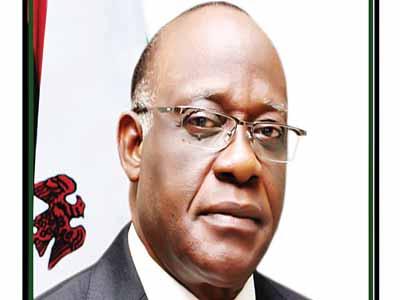
The Director General of NIMET, Dr. Anthony Anuforom said that since national security has been severally defined by experts to encompass “freedom from danger or harm and the assurance of wellbeing of a nation state”, such other threats to life and property as those due to the impacts of climate change like floods, droughts, violent storms, coastal inundation and other extreme weather events affects national security.
Anuforom, who stated this in a Keynote Address entitled “Physics and Telecommunications: Overcoming Security Challenges for Sustainable Development- Issues and Solutions” at the 38th Annual Conference of the Nigerian Institute of Physics (NIP) at the Olabisi Onabanjo University, Ago Iwoye , Ogun State recently on Tuesday added that the “frequency and intensity of these phenomena also undermine sustainable development”.
The Director General who noted that national security is critical to achieving sustainable development, said it has therefore become imperative for government to continue to accord serious attention to the impact of climate change and extreme weather conditions if national security and sustainable development are to be attained.
He said national security in contemporary times go beyond the “threats by conventional and well defined enemies such as other nation states”, stressing that for a nation to achieve national security, it “must possess and maintain the necessary infrastructure and knowledge base” to confront challenges from various other sectors of the economy.
He further said national security also includes the threats from “non-state actors such as violent militants, insurgents, narcotic cartels, kidnappers and other criminal elements”, lamenting that “much of the present security challenges in Nigeria are due to non-state actors”.
“Wherever they exist, the activities of insurgents, non-state actors and other criminal elements often threaten the economy as well as the territorial integrity of a country”, the DG noted.
He added that activities of these elements in the North East, South South and other parts of the country are adversely affecting the Nigerian economy.
He however said the importance of telecommunications to national security cannot be overemphasized as security agencies depend on timely information about activities of non-state actors to enable them put in place adequate measures to ensure the security of the citizenry.
“Given the pivotal role of telecommunications in national security and the economy, it is necessary for the sector to remain on priority agenda. In this regard, it may be necessary to review the relevant telecommunication legislations and policy document to give greater emphasis to security of telecommunications infrastructure”, the DG declared, adding that the Nigerian Communications Act of 2003 is a point in hand.
On how Physics can contribute to national security, Anuforom opined that total dependence on imported technologies that are not well characterized and adapted to our local conditions is in itself a form of national insecurity, stressing that Nigerian scientists can do a lot towards overcoming this type of subtle insecurity in the country.
“Extensive research is needed to develop technologies that are better suited to our local conditions. Since the importation of foreign technologies cannot be totally eliminated, it is equally important for Nigerian Physicists, Engineers and other Scientists to properly characterize and adapt these technologies to our local conditions”, the DG concluded.
In his Welcome Address, the Chairman of the Local Organising Committee (LOC), Prof. Victor U. Chukwuma said the theme of this year’s conference is “seminal and was purposefully chosen to harness ideas and expertise from public intellectuals, physicists and technocrats in order to collaboratively address our national security and sustainable development challenges using physics and telecommunications as Special Purpose Vehicles”.
Meanwhile, Anuforom has stated that Africa is the most vulnerable continent to the impacts of climate change, stressing that early warning is an essential part of emergency preparedness.
According to him, “Early warning is an essential part of emergency preparedness. It enables relevant agencies, communities and individuals at risk to plan and execute necessary precautionary measures such as evacuation of people at risk before the occurrence of a severe weather event, thereby reducing exposure to hazards”.



